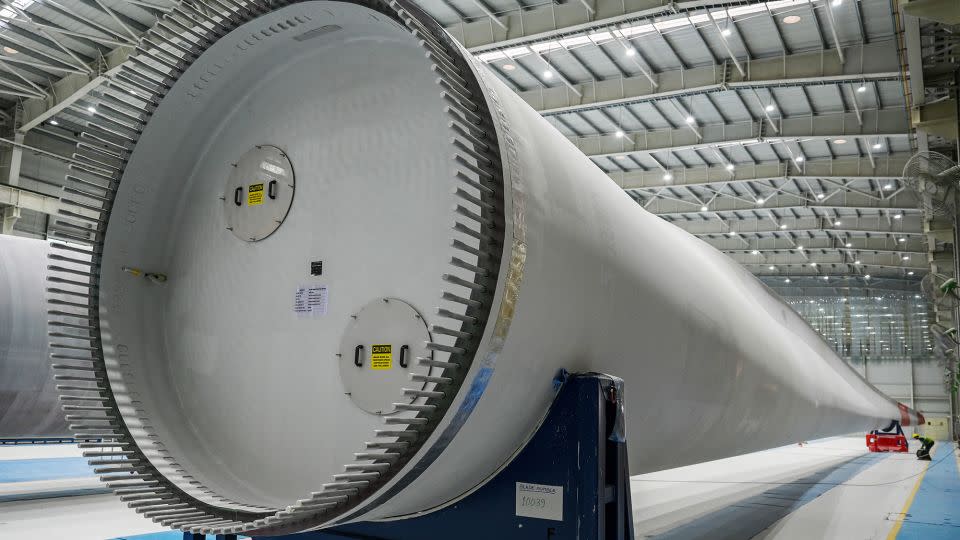Adani Green Energy Limited (AGEL), part of the Adani Group, is working on building the largest renewable energy park in the world in the western Indian state of Gujarat. The park, known as the Khavda Renewable Energy Park, will cost around $20 billion and generate enough clean electricity to power 16 million Indian homes. The scale of the project is immense, covering over 200 square miles and situated near the border between India and Pakistan. Despite facing some challenges, including accusations of fraud and a stock market meltdown, the Adani Group remains committed to its clean energy ambitions.
The success of the Khavda Renewable Energy Park is crucial for India’s efforts to reduce pollution, meet its climate goals, and address the growing energy needs of the country. Currently, coal accounts for 70% of the electricity generated in India. Prime Minister Narendra Modi has set ambitious targets for renewable energy, aiming for sources like solar and wind power to fulfill 50% of India’s energy requirements by the end of the decade. The government has also set a target of 500 gigawatts of non-fossil fuel electricity generating capacity by 2030, with AGEL planning to contribute nearly 30 GW from the Khavda park alone.
India’s energy demand is expected to increase significantly in the coming years, driven by factors such as rising incomes, urbanization, and the need for cooling systems due to climate change-induced heatwaves. The country cannot afford to rely solely on fossil fuels to meet its energy needs without exacerbating the climate crisis. The Adani Group’s shift towards green energy is commendable, but critics argue that the conglomerate still heavily invests in fossil fuel projects, raising concerns about its commitment to sustainability.
Gautam Adani, the chairman of the Adani Group, defends the company’s investments in fossil fuels by emphasizing the need to provide energy access to millions of people in India, many of whom are transitioning into the middle and upper-income brackets. He acknowledges the importance of sustainable energy sources but believes that a complete shift away from fossil fuels is not currently feasible given the country’s economic growth and energy demands. Adani also highlights the challenges faced by developing countries like India, which are balancing economic development with the transition to clean energy.
Despite the criticisms and challenges, the Adani Group remains focused on expanding its clean energy portfolio and meeting India’s energy needs in a sustainable manner. The company plans to invest $100 billion in energy transition over the next decade, with a significant portion allocated to clean energy projects. With India poised to become the world’s third-largest economy and facing a rapid increase in energy demand, the shift towards renewable energy is crucial to addressing the climate crisis while ensuring sustainable development and energy security for the country’s growing population.
In conclusion, India’s transition to renewable energy is a complex and multifaceted challenge that requires balancing economic growth, energy security, and environmental sustainability. The Adani Group’s efforts to build the world’s largest renewable energy park demonstrate a significant commitment to clean energy, but the company also faces scrutiny over its continued investments in fossil fuels. As India strives to meet its climate goals and energy targets, the role of companies like AGEL in driving the transition to sustainable energy sources will be crucial in ensuring a greener and more secure future for the country.


